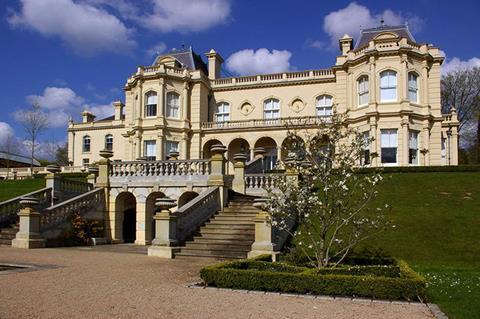Green-belt campaigners have successfully challenged a scheme to turn the former home of press baron Lord Beaverbrook into a hotel and golf course, with a judgment that ‘engages the fundamentals of planning law’.
Longshot Cherkley Court Ltd, owner of the Grade II listed property and 375-acre estate near Leatherhead, was given permission to create a hotel including a health club, spa, cookery school and exclusive 18-hole golf course in 2012.
Campaigners challenged the scheme because of its potential impact on the landscape of the North Downs. They also argued that the developer could not demonstrate any need for the course, as there is already an ample supply of golf courses in the area.
The High Court today overturned Mole Valley District Council’s decision to allow the scheme, ruling that it was legally flawed and flouted planning policy.
In a 56-page judgment, Mr Justice Haddon-Cave said the case ‘engages the fundamentals of planning law’, in being concerned with the regulation of the private use of land in the interests of the community as a whole.

‘Much of the legal argument revolved around whether a “need” for further golfing facilities could be demonstrated,’ says the judgment.
‘The developers argued that proof of private “demand” for exclusive golf facilities equated to “need”. The proposition is fallacious. The golden thread of public interest is woven through the lexicon of planning law, including the word “need”. Pure private “demand” is antithetical to public “need”, particularly very exclusive private demand.
‘Once this is understood, the case answers itself. It is a zero-sum game.
‘Further, planning law decision-making is a process informed by policy, and the courts employ pragmatism and common sense when interpreting it.’
Canadian-born businessman Max Aitken, who became Lord Beaverbook and owned the Daily Express, bought the house in 1911 and lived there until he died in 1964.
The judgment can be read at the judiciary website.



























No comments yet